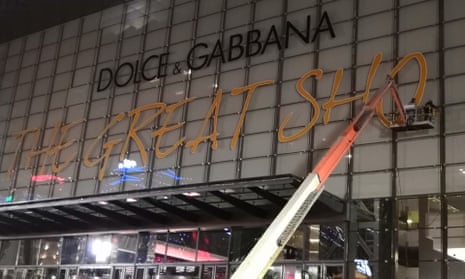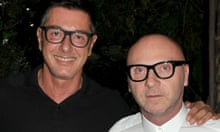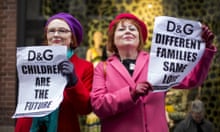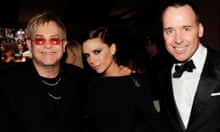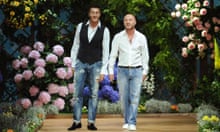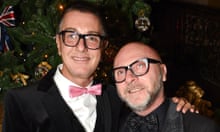Dolce & Gabbana has postponed a catwalk show in Shanghai after an outcry over racially offensive posts on its Instagram account that the fashion brand has claimed were written by hackers.
The controversy arose after the Italian fashion brand published a video on the Chinese social media site Weibo on Monday showing a Chinese model using chopsticks to try to eat a pizza, a cannoli and spaghetti.

Weibo users accused the label of trivialising China’s culture and depicting Chinese women in a racist way. The video was taken down within 24 hours but it had already been shared widely on social media, where the hashtag #BoycottDolce began to circulate.
The accusations of racism and racial stereotyping intensified after what appeared to be an Instagram direct message conversation between Stefano Gabbana and the fashion writer Michaela Phuong was shared by Diet Prada, an Instagram account known for criticising the fashion industry.
In the conversation, Gabbana appears to defend the campaign and make derogatory comments about China and Chinese commenters. He also complains about the video being taken down.
In a subsequent statement on Instagram, the company claimed: “Our Instagram account has been hacked. So has the account of Stefano Gabbana. Our legal office is urgently investigating,” and apologised for “any distress caused by these unauthorized posts, comments and direct messages”.
It added: “We have nothing but respect for China and the people of China.”
A statement released later on Wednesday said the planned Shanghai event was “something that we created especially with love and passion for China and all the people around the world who love Dolce & Gabbana … What happened today was very unfortunate not only for us, but also for all the people who worked day and night to bring this event to life.”
Some of China’s biggest celebrities had been billed to attend the catwalk show, but on Wednesday many announced their withdrawal.
“Our mother country is more important than anything, we appreciate the vigour and beauty of our cultural heritage,” said the management of Wang Junkai, a singer in the popular boyband TFBoys, as they announced his withdrawal.
“I love my mother country,” the actor Li Bingbing told her 42 million fans on Weibo, while fellow actor Talu Wang posted: “Respect is more important than anything.”
Even China’s Communist Youth League entered the fray, posting on Weibo that “foreign companies operating in China should respect China and respect Chinese people”.

Dolce & Gabbana has been contacted for comment.
The controversy could result in a financial blow to the company, which has shops in 25 cities in China. According to a 2017 McKinsey report, Chinese luxury consumers spend more than 500bn yuan (£56bn) a year, which accounts for almost a third of the global luxury market.
This is not the first time the brand has been embroiled in a public outcry on this scale. In April 2017, it published a campaign on Weibo depicting Beijing as an underdeveloped city. The post was deleted after complaints.
In 2007, the label was openly criticised by Britain’s Advertising Standards Authority for a series of adverts which appeared to depict violence against women.
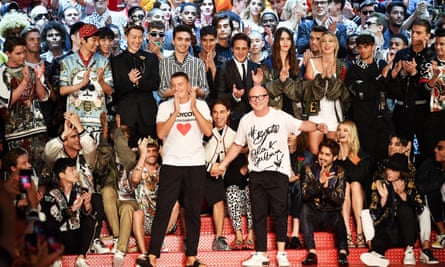
Five years later, in 2012, Dolce & Gabbana was accused of romanticising slavery after it sent models down the catwalk wearing earrings reminiscent of Blackamoor artworks. Three years later, the label listed a pair of shoes on its website as “slave sandals with pompoms”. They were later renamed “decorative flat sandals”.
In perhaps the largest controversy to date, in 2015 the designers came under fire when Domenico Dolce called children born through IVF “synthetic”, adding that the design duo opposed gay adoption and that IVF pregnancies were “chemical offsprings and rented uterus”. Dolce later apologised.
Agence France-Presse contributed to this report
